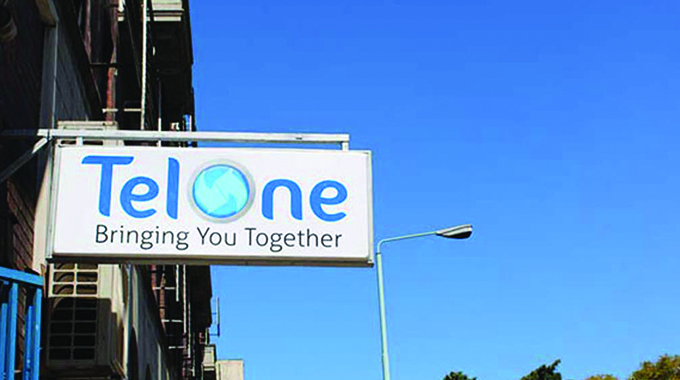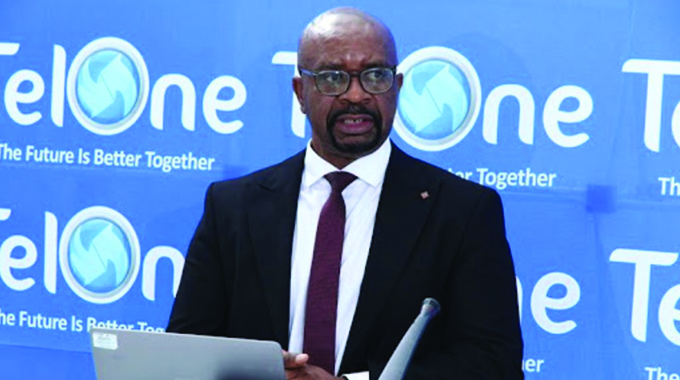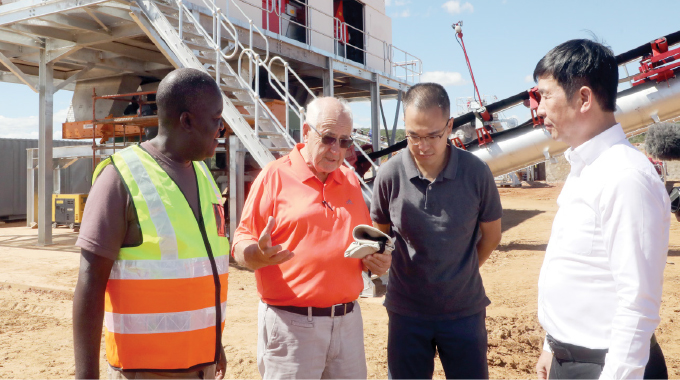TelOne optimistic Mutapa investment will boost operations

Harare Bureau
MUTAPA Investment Fund will help transform TelOne, one of its subsidiaries, which is urgently seeking US$250 million to position itself as a modern communications solutions provider, TelOne chief executive officer Mr Lawrence Nkala has said.
He was responding to queries last Thursday at the start of a two-day engagement that saw journalists being taken on a tour of TelOne’s operations in Harare, Bulawayo and Esigodini.
TelOne is owned by Government through the Mutapa Investment Fund, which has shareholding in 20 State-owned Enterprises including POSB, NetOne, National Railways of Zimbabwe and the National Oil Infrastructure Company.
President Mnangagwa has since appointed Reserve Bank of Zimbabwe Governor Dr John Mangudya as Mutapa Investment Fund chief executive officer.
Dr Mangudya’s tenure as RBZ boss ends on April 30.
His appointment was made in line with the dictates of good corporate governance on succession planning for forward guidance of the market.
And Mr Nkala is optimistic that Mutapa will help transform TelOne’s operations, which are presently affected by a debt overhang of US$390 million, translating to about $4,2 trillion, as at January 2024. These legacy loans are impacting TelOne’s capacity to access fresh capital.
In March 2019, Government undertook to warehouse TelOne’s debt to free the company of the encumbrance so it can access funding for business expansion.
Mr Nkala said they were working with Government on the process, but said it “is not fast enough”.
“The traction is slow and we hope with the coming in of Mutapa, this will be accelerated as Government wants to ensure that entities under Mutapa are agile and are able to attract capital and wealth to contribute to the fund,” he said. So, this is our hope that this process of debt warehousing will be accelerated.
“We have been talking to the Ministry of Finance, Economic Development and Investment Promotion and line ministries and Mutapa as well. There is promise that this conversation is top of the agenda of their things to deliver.”

TelOne chief executive officer Mr Lawrence Nkala
Mr Nkala said TelOne was pursuing a fixed-mobile convergence as its business model, anchored on its recently renewed licence that permits them to pursue mobile technology to augment its current technological offering.
But growing the business using new technologies will require significant investment and TelOne has developed a technology roadmap that requires US$250 million, to position it as a modern communications solutions provider.
Mr Nkala said they have been engaging partners, and are working around public-private partnership and debt financing models.
They are also talking to local banks which, unfortunately, cannot provide the tenure and amount they wish to raise.
“I am happy that we have been getting something from the banks, but it’s not enough. So we need a US$250 million injection immediately,” he said.
Due to the legacy loans, some financiers have raised concern around TelOne’s balance sheet and question the company’s ability to repay any new investments made, hence the request for Government to hive off the legacy loans, which were inherited from the Postal and Telecommunication Company (PTC) at the unbundling of the predecessor company in 2000. PTC had secured the loans in the 1980s and 1990s to fund various infrastructure projects, which had become obsolete at the time of the unbundling.
But in the absence of fresh capital injection from the shareholder and other financiers, TelOne has been making steady progress through internally generated funds, managing to generate and invest an average of US$10 million annually in the last three years.
Some of the progress made includes the deployment of the Harare-Masvingo-Beitbridge and Harare-Bulawayo-Beitbridge backbone fibre, which ensured improved bandwidth capacity coming into the country at a lower cost, in the process enhancing TelOne’s resilience and its capacity as the carrier of carriers.
Subsequent to the deployment of the backbone links from Beitbridge, an additional backbone fibre transmission link connecting Zambia and Zimbabwe via Makuti and Chirundu was also commissioned allowing TelOne to generate foreign currency through providing inter-connection service between South Africa, Zambia and other countries up north.
Further, the funding has helped TelOne to introduce the data centre business, providing data storage solutions, cloud services and disaster recovery for business and Government departments.
The company has also deployed fibre to homes, managing to connect 20 000 homes in the last three years.
Other challenges such as debtors, vandalism and an unsustainable tariff, also affect the company’s capacity to implement its turnaround strategy.
TelOne is presently owed about $200 billion by its clients, with Government departments and ministries making up about 80 percent of the debt.
Several efforts including the introduction of pre-paid billing and cutting off defaulters are being employed to improve collections.
Theft of copper cables and other network elements are also affecting operations, with Harare, Kadoma, Kwekwe and Gweru the worst affected, resulting in some areas going without service for months.
Last year, almost 50 000 TelOne customers were at some point affected by downtime due to network theft and vandalism.
The value of the vandalised network last year was about US$1 million, and replacement of the copper network, which is now outdated, has become urgent.
Last year, Harare recorded 126 cases, followed by Midlands 75 and Matabeleland North 4 although 38 arrests were made and four convictions were achieved.
Vandalism of TelOne and Zesa infrastructure attracts a mandatory 10-year jail sentence.
TelOne has since partnered with the Zimbabwe Revenue Authority, the police and other State security agencies to step up patrols at the country’s borders to control the smuggling of stolen copper, while lobbying for legislation review and community sensitisation are also being employed.










Comments